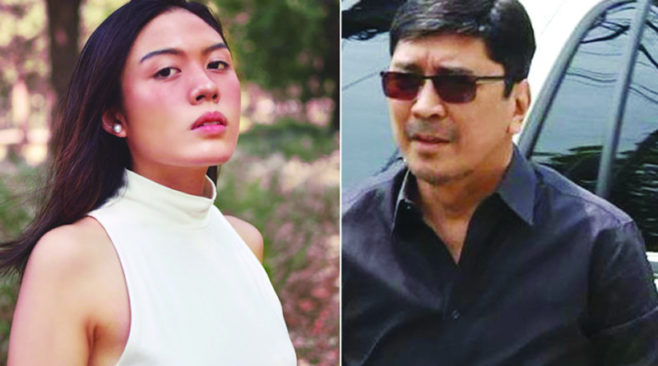Frankie Pangilinan made headlines over the weekend after she made a firm stand against rape culture and victim shaming in the Philippines.
This after Pangilinan called out broadcaster Ben Tulfo on Sunday because he disagreed with her views that women should not be taught how to dress up to protect themselves against sex offenders.
Speaking on ANC on Wednesday, Pangilinan said she replied to Tulfo because she felt like “it was unfair for a public figure of his stature to say that so boldly to his audience.”
Pangilinan believes comments like those of Tulfo are very narrow-minded and that there is a bigger problem that exists.
“The root of the problem is the bigger theme here, which is that rape culture is real. There is a culture that constantly perpetuates this type of over masculinization where they are constantly kind of pushed to talk about their sexuality and be comfortable about their sexuality whereas women are shamed for it constantly,” she said.
“There’s no winning when you’re a girl. When you cover up too much, you are teased for being a prude, but if you reveal too much, you are called a slut,” she added.
According to Pangilinan, Tulfo’s whole statement was “very unprofessionally made.”
“I think that yes, ‘hija’ as a term is constantly used in a condescending manner, especially when speaking to youth like me when we have something to say or a point to make. It kind of seems like the first instinct was to invalidate everything I was saying based upon my age,” she said.
Pangilinan also thought Tulfo’s comment was meant to portray her as someone who is young and naive and doesn’t know her way around the world yet.
“I am 19. It’s incredibly invalidating to people like me who are doing their best to be educated and doing their best to be aware and learning more and more about things like this, especially women. He’s not a woman. I don’t think he’s ever experienced any sort of abuse similar to that. I don’t think he’s ever experienced any sort of discrimination through his gender. I don’t think it was within his place to say something like that,” she said.
For Pangilinan, she was simply putting forward the simple truth that “rape would not exist without rapists.”
“People need to understand that. That has to be crystal clear. It’s a thing of principle. It’s not politics, it’s not glamor,” she said.
Meanwhile, Pangilinan shared that she is no longer sensitive to comments espousing views contrary to what she believes in.
“In a weird way, I feel like I’ve been somewhat prepared for it. I feel like at this point, I am not as sensitive to it anymore. Because at the end of the day, whatever pain such comments might cause me now and in the future, I don’t think any of that is ever gonna amount to the pain that so many Filipinos face under so much injustice,” she said.
What matters, Pangilinan said, is that she can rest easy knowing that she is fighting for what she thinks to be fundamentally correct.
Does her father, Senator Francis Pangilinan, in any way influence her in thinking this way?
“I owe a lot of how I think and how I feel from my parents. That’s what people don’t tend to realize. I caught them a couple of days ago, maybe last week. They were laughing and scrolling on the phone. They were reading pala my Twitter. My mom basically said, ‘That’s something your dad would think.’ It’s phrased the way I would say it,” she said.
Pangilinan said there’s a certain degree of passion and empathy that her dad and mom Sharon Cuneta have imported upon her growing up.
“My parents raised us to always be contextually aware and what we can do to help and how we can empower others. That’s always been a priority ever since I was a kid. I am gonna carry that well into my adult years. I’m excited to see what I can do,” she said.
Pangilinan is the eldest daughter of the senator and Cuneta.








